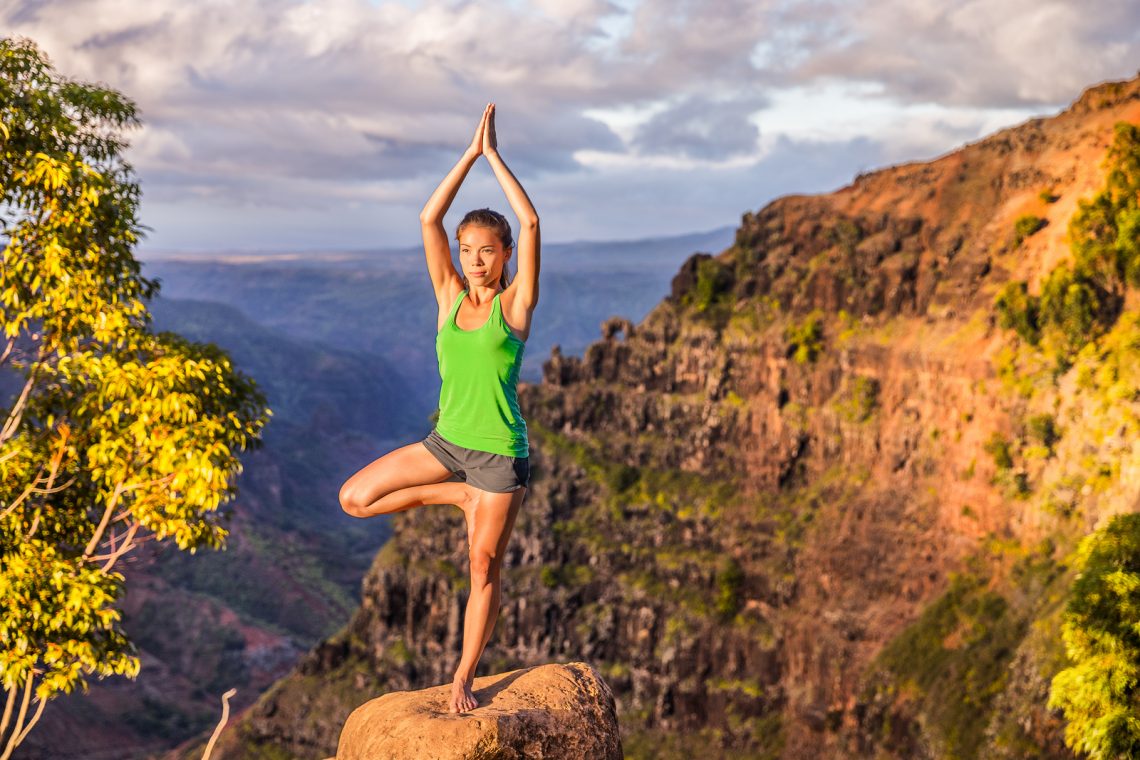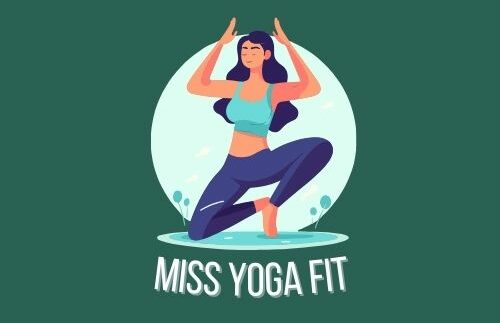POSE INFORMATION
GENERAL INFO
Name in Sanskrit: Vrksasana
Difficulty: Easy
POSE BENEFITS
- Strengthens the calves, ankles, spine, and thighs
- Stretches the chest, shoulders, inner thighs and groins
- Corrects flat feet and relieves sciatica
POSE CAUTIONS
Avoid this pose if you have headaches, insomnia or low blood pressure. If you have high blood pressure, when performing the pose, don’t lift your arms over your head.

HOW TO PRACTICE THIS ASANA
ONE
Stand in the mountain pose. Move your weight to your right foot, making sure your inner foot stays grounded, then bend your left knee. Take your left hand to your left ankle and clasp it.
TWO
Pull your left foot upwards, placing its sole against your inner right thigh. If you’re flexible enough, press your heel into your inner right groin with your toes pointing to the floor.
Your right foot should be directly underneath the middle of the pelvis
THREE
Place the hands on your pelvis, making sure it remains neutral with its top rim parallel to your mat.
FOUR
Extend the tailbone towards your mat. Apply pressure to your inner right thigh with your left foot, and resist this force with your outer right leg.
Bring your hands together in prayer and direct your gaze to your mat on a point roughly 4 feet away from you.
FIVE
Hold this pose for about a minute then, on an exhale, step back into Tadasana. Repeat steps on the opposite leg.
How to do the Tree Pose (Vrksasana)
BEGINNERS TIP
The foot wedged on your inner thigh would tend to slide downwards on the leg.
If this happens, fold a sticky mat and place it between you thigh and the sole of your raised foot.
DEEPENING THE POSE
As with the mountain pose, your balance can be challenged by practicing the pose while keeping your eyes closed.
This is because you are now balancing without reference to your external environment.
PARTNERING
When practicing the tree pose with your hands raised over your head, you can have a partner help lengthen and raise your arms. Lift the arms straight up and ask your partner to press your upper arms inwards while standing behind you.
Now, pull the inner arms towards the floor, pulling from your wrist to the heads of your shoulders, while simultaneously lifting the outer arms upwards.
VARIATIONS
Extend the arms upwards, keeping them equidistant from each other with palms facing inwards, or form and inverted “V” with your arms by making your palms touch.
Katty Linsky, a certified Restorative Yoga teacher based in the vast landscapes of Russia, has dedicated herself to the art of yoga.
Her journey through yoga, particularly the gentle practice of Restorative Yoga, has been a transformative and enlightening one, rooted in a deep passion for holistic wellness and a commitment to sharing its benefits.

